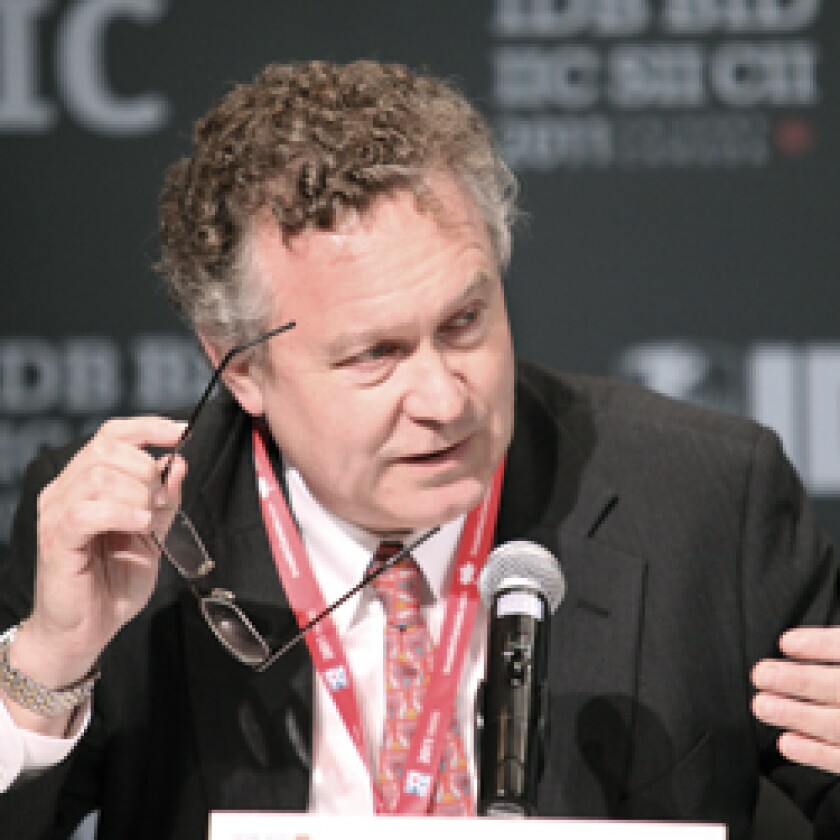The threat of inflation poses the biggest challenge to Latin American policymakers, the Institute of International Finance (IIF) said yesterday.
Inflation projections are still on the rise, even though many countries in the region have started tightening monetary policy.
Policymakers have to adjust to a period of slower economic growth, following last year’s rebound, the IIF said in its regional report, issued yesterday.
Its message chimed with comments by former Citigroup senior vice chairman Bill Rhodes, who warned in an interview with Emerging Markets this week that inflation remained the biggest threat to the region. “Managing the flood of investment into Latin America is a major challenge. These countries will have to move carefully or otherwise they risk re-stoking inflation,” he said.
In 2010, regional GDP soared by 6.1% following a 2.2% contraction the previous year, and the IIF has forecast a slowdown in growth to 4.5% this year and level growth at 4.6% in 2012.
The IIF expects regional inflation to increase to 8.6% in 2011, up half a percentage point from 8.1% last year. Growth has gathered pace in several countries, and there are still pressures from the prices of commodities, including oil, as a consequence of the events in the Middle East.
Argentina was one of the fastest growing countries last year – with a growth rate of 8.8%, the same as Peru’s – and experienced inflation of around 25%, according to independent estimates.
Many countries that have adopted inflation targeting regimes are now struggling to meet their targets. “The region has a legacy of inflation,” Phil Suttle, the IIF chief economist, said, “so when we talk about inflation expectations, they are not as well anchored in Latin American countries [than in G7 countries]. Brazil is a great example.”
Frederick Jaspersen, the IIF Latin America director, told Emerging Markets: “Even in Chile, which has adopted policies that are the closest you can get to perfection, inflation expectations are a bit up.”
“Things are not getting out of control – but the more inflation is above target, the more credibility is eroded, and it becomes even more difficult for policies to have the desired effect.”
Juan Ruiz, regional director for Santander agreed that “The main problem is inflation”.
“You need to have governments reacting to the situation of high growth and getting very near potential growth level.”
Credibility takes many years to build and can be eroded very quickly, Suttle pointed out – adding that Latin America can seize this opportunity to pursue aggressive targets.
“You can argue that this is a great opportunity on the credibility side, because if each time you get an economic cycle and an upswing in rising inflation, if you deal with it well, each time you build an extra layer of credibility,” he told Emerging Markets.
“This inflation cycle is an opportunity for policy makers in the region to show they are truly serious about keeping inflation in a sort of 2% to 3% range over the medium term.”
Suttle said he did not see risks of inflation getting out of control in many countries apart from Venezuela and Argentina.
“Many of the gains of the last few years are the result of keeping inflation low, and it would be a real tragedy to see that unwind,” he added. “The risk/reward ratio is in favour of being vigilant on inflation more in Latin America than in Europe or the US.”
